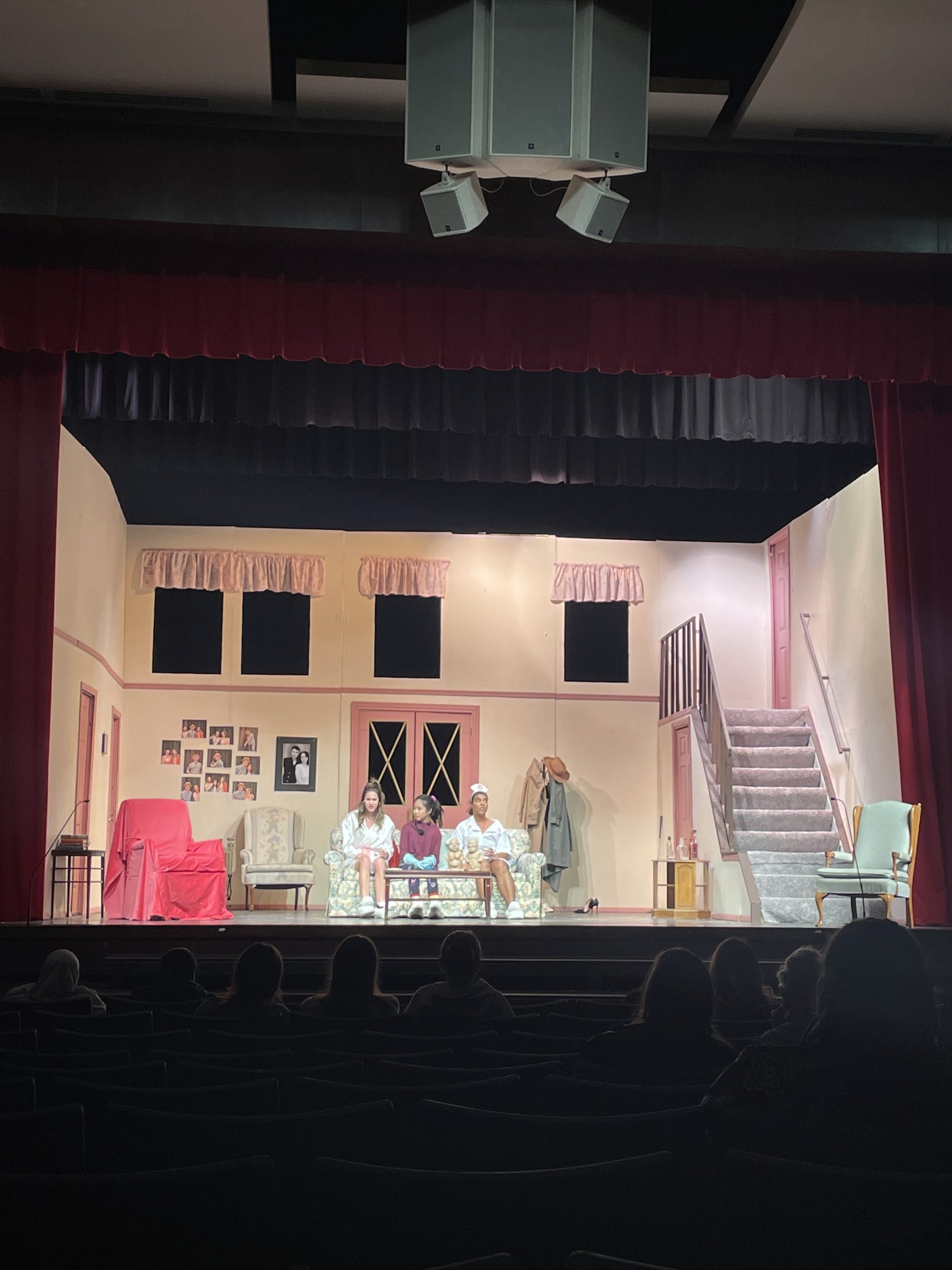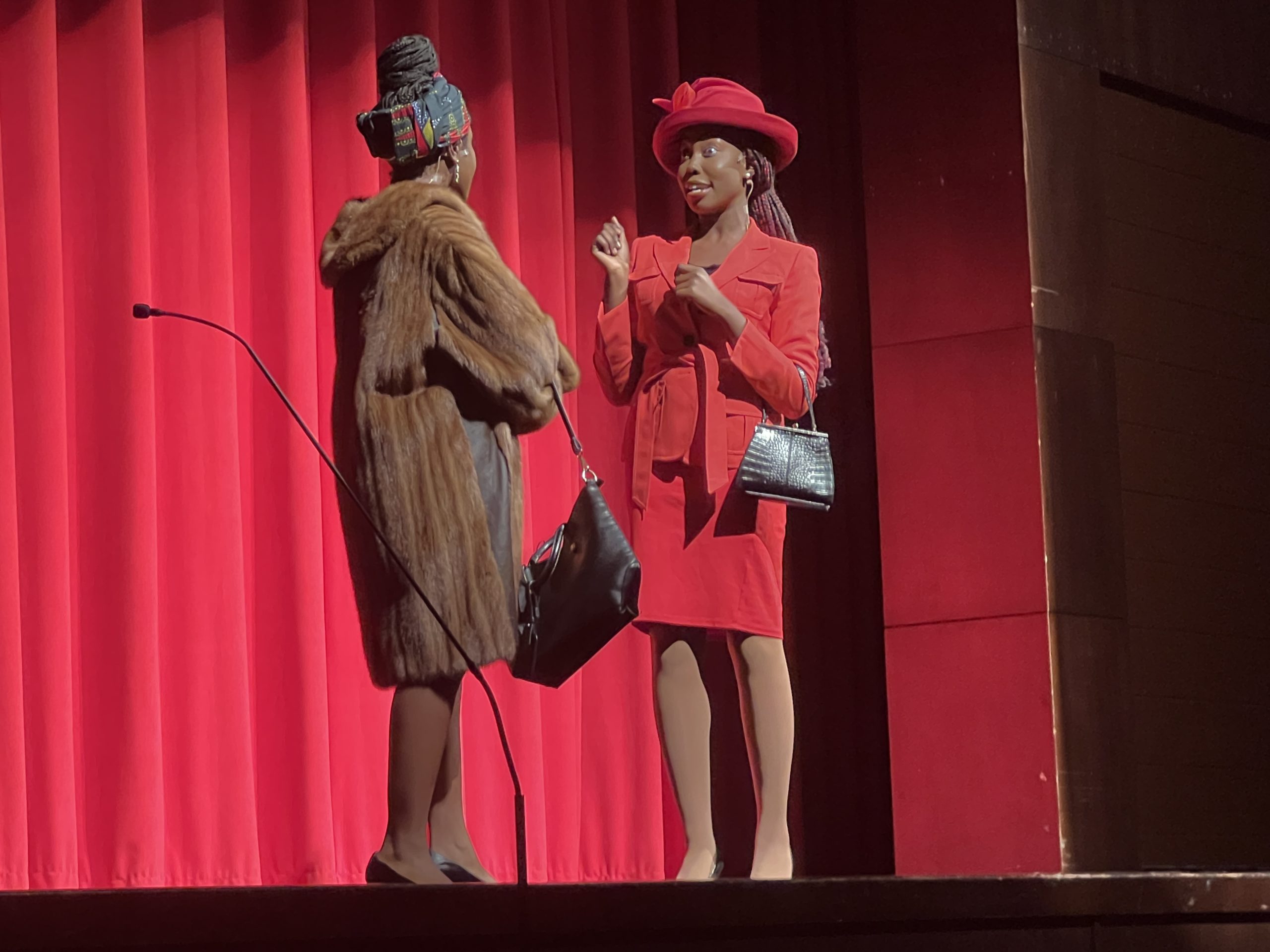A review of the Titan Theater Department’s Fall Play
Sarah Porter
Staff Writer
One Slight Hitch was performed by the ACHS Drama Department this fall quarter. The play-comedy written by comedian Lewis Black tackled family relationships and internal conflict interwoven with political commentary about the American Dream.
Set in the suburbs of Cincinnati, Ohio in the summer of 1981, it is Courtney Coleman’s (played by Ione Erber) wedding day. She is positioned to marry the mature and respectable Harper (played by Christos Pethokoukis). All seems well until Courtney Coleman’s ex-boyfriend, Ryan (played by Lucas Trueblood) shows up at her doorstep, unaware of the wedding, after hitchhiking from New York City.
Courtney Coleman’s father, Doc Coleman (played by Peter Russo), frantically attempts to dissolve the situation, hiding Ryan in various spots of the house, attempting to keep him out of the view of his wife, Delia Coleman (played by Neya Alper) because she has dreamt of her daughter’s wedding day her whole life. Over the course of the play, the family members slowly discover Ryan’s presence, leading to the eventual unraveling of the entire wedding. Another notable character is Melanie (played by Angelina Martinez), the middle of the three Coleman sisters, who becomes enthralled and excited with the nearly-naked Ryan upon coming across him standing in her living room.
Amongst the frenzy is P.B., the youngest daughter (played by Arianna Espiritu) who takes refuge in her Walkman. She repeatedly plays the music of Kim Carnes’s Bette Davis Eyes as she dances throughout the house in a Risky Business fashion.
As the drama unfolds, Courtney realizes the marriage is not right for her and chooses to cancel the wedding. To not waste the already planned ceremony, Delia and Doc Coleman choose to renew their love for each other in a somewhat corny but nonetheless sweet ending.
Overall, the Titan theater team performed well with snappy dialogue and good use of space. The actors movements were dynamic, and the turmoil of emotions that the characters underwent was and well-portrayed. The set of the play featured an open, outward-facing living room setting, with a couch in the center and a staircase to the right. It was realistic and largely resembled the look of many suburban homes in the 1980s.
Each section and corner of the set was used, creating movement and fluidity within the scenes, despite the set never changing throughout the show. Since the set never changed, the audience’s attention was more easily drawn to the actors’ speech, placing more pressure and emphasis on the dialogue. Considering this, the actors were successful in presenting lines in a snappy and upbeat way. In particular, Neya Alper, who played Delia Coleman, shined. Her monologue on motherhood that neared the end of the play was spectacular and encapsulating.
However, the plot had odd pacing. In the first half of the first act, the plot was painfully slow, with dragging dialogue that matched the plot’s slow pace. In the second half of the first act, the plot began to pick up before being cut to the intermission. When the curtains opened again for the second act, we expected the play to maintain that exciting dialogue that appeared at the end of the first act, but, instead, it lost its momentum. It was not until the last section of the play that the plot was really able to flow again.
In particular, in one scene of the play wherein the three Coleman sisters have a heartfelt conversation sitting on the couch, the dialogue and movement flowed the best. Their back and forth in speech created the atmosphere of a real household, and realistically represented a conversation between bickering, but supportive sisters.
In the end, one of the final scenes of the play wherein Delia Coleman accepts her daughter’s refusal to marry was sentimental and sweet. It was well-ended and wrapped up the plot in a nice and satisfying way.
Featured image by Sarah Porter for Theogony





